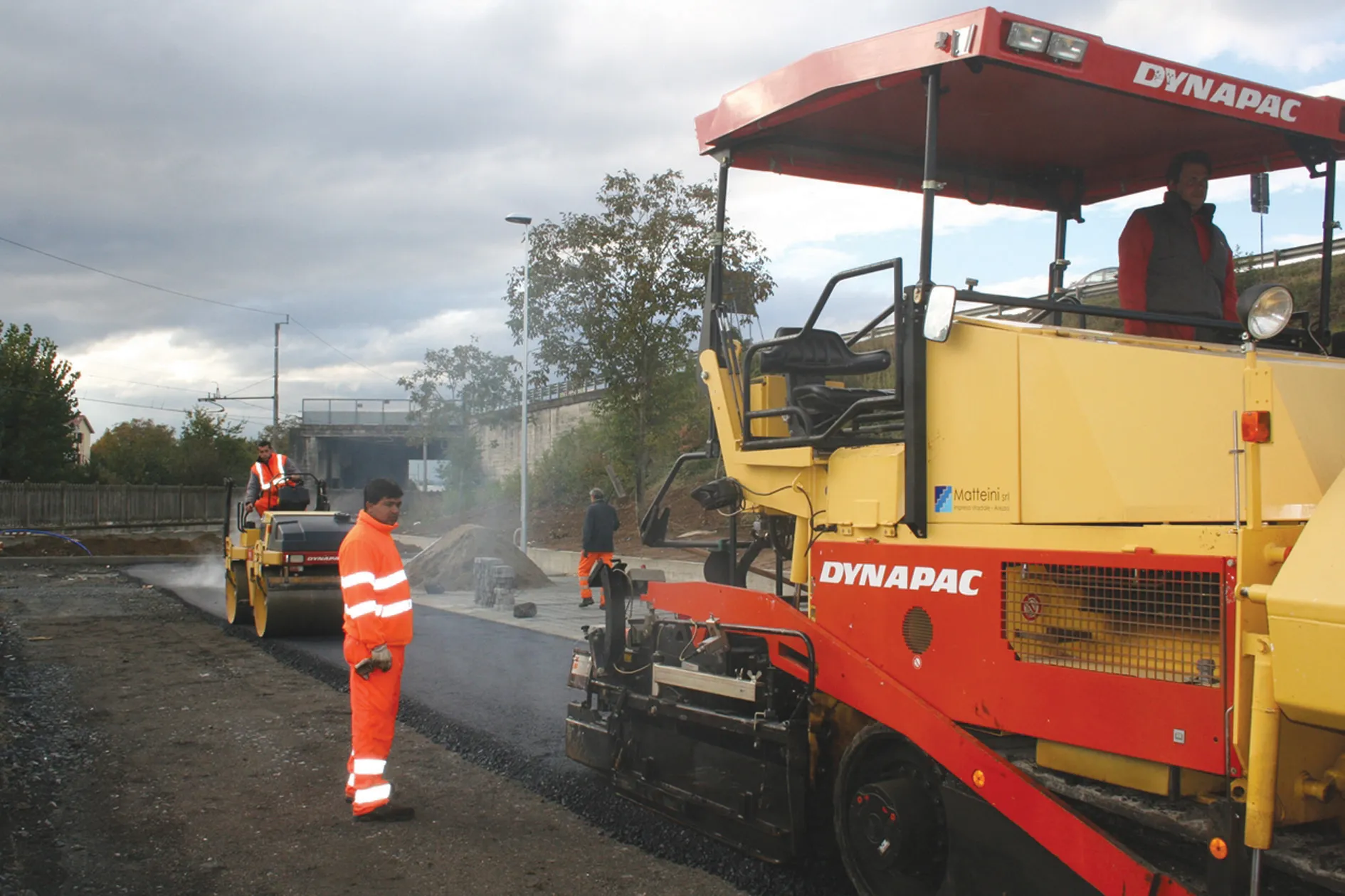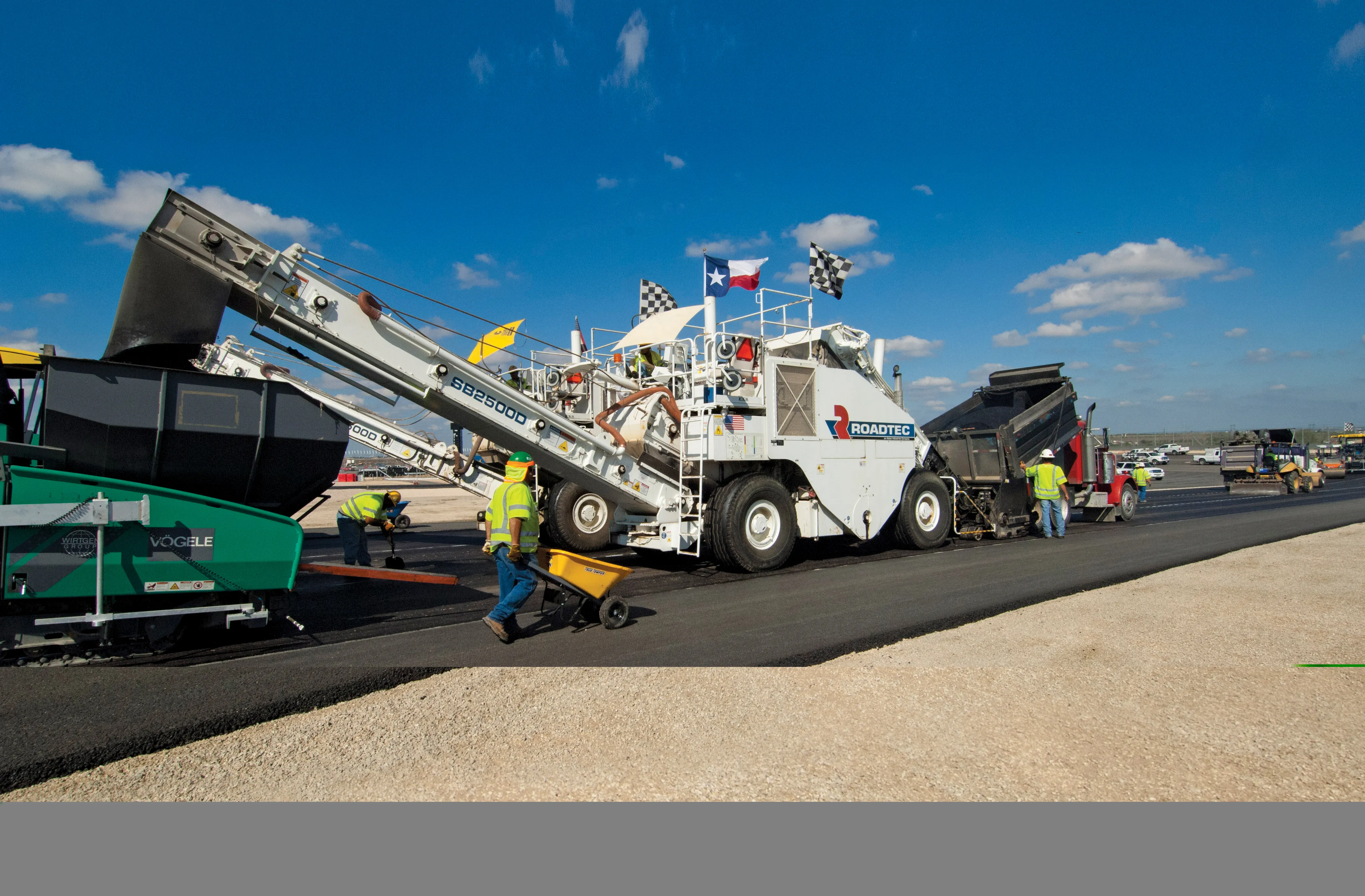Brazil’s Ayrton Senna Highway has been rebuilt using cold recycling.
Brazil’s SP-070 is also known as the Ayrton Senna Highway and is a major highway in the country, carrying heavy traffic volumes. For its rebuild, the time-saving, cost-efficient and eco-friendly benefits of the cold recycling process have been put to the test.
The SP-070 provides a key transport link between São Paulo and Campos do Jordão, Vale do Paraíba and Rio de Janeiro, as well as being the main access route to Guarulhos Interna
September 28, 2015
Read time: 4 mins

Brazil’s Ayrton Senna Highway has been rebuilt using cold recycling
Brazil’s SP-070 is also known as the Ayrton Senna Highway and is a major highway in the country, carrying heavy traffic volumes. For its rebuild, the time-saving, cost-efficient and eco-friendly benefits of the cold recycling process have been put to the test.
The SP-070 provides a key transport link between São Paulo and Campos do Jordão, Vale do Paraíba and Rio de Janeiro, as well as being the main access route to Guarulhos International Airport. Since 2009 it has been operated by3511 Ecopistas, which has a 30-year concession for the maintenance of the Ayrton Senna Highway.
Structural repairs have been carried out on a 35km section, the stretch between the 11 and 46 kilometre marks, which extends from São Paulo in an eastern direction. The work was desperately needed as the 250mm cement-bound base course under the asphalt was severely damaged due to the high traffic volume, some 125,000 vehicles/day in each direction, of which 15% comprise heavy goods vehicles.
Ecopistas and Fremix Engenharia e Comércio, the company contracted to rehabilitate the road surface, agreed to use a technology that would deliver good results in a short construction time. This used recycled material with foamed bitumen, produced in2395 Wirtgen's mobile cold recycling mixing plant, the KMA 220.
When selecting the best rehabilitation method, the contractors also needed to meet one key condition, avoiding hindering traffic flow. On working days, the construction work on this major transport route was restricted to an overnight 8-hour window from 9pm to 5am, since even the most minor closures for roadworks would cause massive traffic hold-ups. High traffic volumes during daytime mean that no lanes can be closed between the São Paulo city limits and the airport so the work had to be carried out at night.
The tight timeframe meant that a thick asphalt pavement (or a new concrete surface) would be out of the question. Thicker asphalt layers used in conventional rehabilitation processes need to cool for about four days and for concrete pavements, setting takes even longer. Using cold recycling technology allowed the road surface to be repaired section by section before being immediately reopened to traffic. Further advantages of this method include rapid completion of the works, a minimal number of transport journeys and recycling of the reclaimed material.
The 100mm asphalt surface course and the underlying 250mm cement stabilisation layer, both requiring rehabilitation, were milled out separately and conveyed onto trucks. For this task Fremix used two of Wirtgen's large milling machines, the W 1900 and the W 200.
The reclaimed material was transported by truck to a mixing location set up in close proximity to the site. It was crushed using a261 Kleemann MC 110 Z EVO track-mounted jaw crusher to ensure that the grain size did not exceed 20mm and that the material had an optimal granulometric composition.
Using two Wirtgen KMA 220 mobile cold recycling mixing plants, the reclaimed material was then recycled into a quality mix with foamed bitumen (BSM). The two plants were quickly installed next to the motorway, reducing the number of material transfers. The machines allowed the project team to reuse the reclaimed material and optimise performance by adding binders and supplementary materials, providing a pavement with a long service life and good material properties.
Loudon International was in charge of the mix design and quality monitoring. Working with the technicians from JBA Engineering and Consulting, Loudon provided support for the preliminary investigations and project execution. Preliminary tests on materials were carried out with the Wirtgen WLB 10 S laboratory scale foamed bitumen plant, in combination with the Wirtgen WLM 30 laboratory-scale twin-shaft compulsory mixer. This allowed the quality of the foamed bitumen and the optimum composition of the mix to be identified before construction work commenced. The formula finally selected comprised 1% hydrated lime and 2% bitumen.
The hot bitumen is foamed in the expansion chamber of the KMA 220 by adding air and water. This produces foamed bitumen which is 20 times the volume of the original product. The foamed bitumen is combined with the hydrated lime and the reclaimed material to produce a homogeneous mix. The recycled reclaimed material was paved in two layers: The 200mm-thick first layer was compacted by both a 14tonne228 Hamm 3414 compactor and a 9tonne Hamm HD 90 tandem roller, and then the HD 90 completed the compaction of the 130mm-thick second layer on its own. The 1194 Vögele SUPER 1300-3 tracked paver was used to apply a thin 20mm surface course. A Hamm GRW 280 rubber wheeled roller took care of the final compaction of the asphalt mix.
Brazil’s SP-070 is also known as the Ayrton Senna Highway and is a major highway in the country, carrying heavy traffic volumes. For its rebuild, the time-saving, cost-efficient and eco-friendly benefits of the cold recycling process have been put to the test.
The SP-070 provides a key transport link between São Paulo and Campos do Jordão, Vale do Paraíba and Rio de Janeiro, as well as being the main access route to Guarulhos International Airport. Since 2009 it has been operated by
Structural repairs have been carried out on a 35km section, the stretch between the 11 and 46 kilometre marks, which extends from São Paulo in an eastern direction. The work was desperately needed as the 250mm cement-bound base course under the asphalt was severely damaged due to the high traffic volume, some 125,000 vehicles/day in each direction, of which 15% comprise heavy goods vehicles.
Ecopistas and Fremix Engenharia e Comércio, the company contracted to rehabilitate the road surface, agreed to use a technology that would deliver good results in a short construction time. This used recycled material with foamed bitumen, produced in
When selecting the best rehabilitation method, the contractors also needed to meet one key condition, avoiding hindering traffic flow. On working days, the construction work on this major transport route was restricted to an overnight 8-hour window from 9pm to 5am, since even the most minor closures for roadworks would cause massive traffic hold-ups. High traffic volumes during daytime mean that no lanes can be closed between the São Paulo city limits and the airport so the work had to be carried out at night.
The tight timeframe meant that a thick asphalt pavement (or a new concrete surface) would be out of the question. Thicker asphalt layers used in conventional rehabilitation processes need to cool for about four days and for concrete pavements, setting takes even longer. Using cold recycling technology allowed the road surface to be repaired section by section before being immediately reopened to traffic. Further advantages of this method include rapid completion of the works, a minimal number of transport journeys and recycling of the reclaimed material.
The 100mm asphalt surface course and the underlying 250mm cement stabilisation layer, both requiring rehabilitation, were milled out separately and conveyed onto trucks. For this task Fremix used two of Wirtgen's large milling machines, the W 1900 and the W 200.
The reclaimed material was transported by truck to a mixing location set up in close proximity to the site. It was crushed using a
Using two Wirtgen KMA 220 mobile cold recycling mixing plants, the reclaimed material was then recycled into a quality mix with foamed bitumen (BSM). The two plants were quickly installed next to the motorway, reducing the number of material transfers. The machines allowed the project team to reuse the reclaimed material and optimise performance by adding binders and supplementary materials, providing a pavement with a long service life and good material properties.
Loudon International was in charge of the mix design and quality monitoring. Working with the technicians from JBA Engineering and Consulting, Loudon provided support for the preliminary investigations and project execution. Preliminary tests on materials were carried out with the Wirtgen WLB 10 S laboratory scale foamed bitumen plant, in combination with the Wirtgen WLM 30 laboratory-scale twin-shaft compulsory mixer. This allowed the quality of the foamed bitumen and the optimum composition of the mix to be identified before construction work commenced. The formula finally selected comprised 1% hydrated lime and 2% bitumen.
The hot bitumen is foamed in the expansion chamber of the KMA 220 by adding air and water. This produces foamed bitumen which is 20 times the volume of the original product. The foamed bitumen is combined with the hydrated lime and the reclaimed material to produce a homogeneous mix. The recycled reclaimed material was paved in two layers: The 200mm-thick first layer was compacted by both a 14tonne








